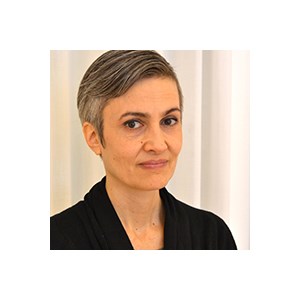Contact
njfak@slu.se, +46 18 67 10 00

Understanding differences makes a difference
As I write this, it is 5 days until I welcome a new group of curious, excited and probably nervous students to Ultuna for the 10th time. Even though I know exactly what to do by now, I'm still a little nervous; that's the thing about new challenges, such as meeting a new group of people.
As a teacher, I know I can do a lot to influence the evolving group culture. It affects how students will like it here at SLU and, subsequently, their openness and ability to learn what we teach. Being clear with my intentions and expectations is a good start. I tell my students that there are no stupid questions – they are here to learn new things and think in new ways. In this process, they need to be kind to themselves, because it's hard being new at something.
I talk about my own experience as a student, and how I learned a lot from my classmates. Our discussions and the questions others had helped me understand new things and see things from other perspectives. It's important that everyone has the courage to ask their questions. We need to get over our shyness and dare to speak, because it's not our persona that is important in the context, it's what we want to ask or say. That needs to be heard. This is one of the general skills that SLU provides: a lesson for life.
I try to use inclusive language. For example, I say "break" instead of "stretch your legs" (which excludes people in wheelchairs, present or non-present), explain references and subtexts, don´t presume that everyone was born in Sweden. I say that for me as a teacher, it is very important that they show respect for each other, that there's room for all kinds of opinions, physical and mental conditions, and ways of being. I know that all of this makes a difference.
I also talk about norms: the unwritten rules, ideas and ideals related to how we are expected to act, live and look – the often unspoken preconceptions about our fellow humans that we all have. For landscape architects it´s part of the profession to talk about norms. We create outdoor environments that must work for different people in different contexts. Therefore, we must have an understanding of people's differences and understand why we reason? the way we do. We need to have these kinds of discussions at the university, regardless of the field in question, because we are always in a context with other people since we have both colleagues and students.
The Educational Development Unit (EPU) recently arranged a conference about internationalisation. We talked about how it can be an analysis tool to meet new cultures and lifestyles, and that it also requires critical and self-critical thinking. Here, we come back to the discussion about norms, because in the work of seeing and being open to others, we have to start by looking at ourselves. What are my preconceptions, how do they affect how I interpret, meet and communicate with my surroundings fellow human beeings? Without such a starting point, I'm blind to my own interpretations of the world, and I can be tricked into thinking that my prejudice is neutral truth. We must look at ourselves, or we become invisible spectators of "the others"; another lifestyle, skin colour, custom, etc. This doesn't lead to deeper intercultural insight – instead, we risk exotifying other people, strengthening alienation and, in worst case scenarios, discriminating against others without even realising it.
A new gender equality and equal opportunities organisation has been created at SLU. I'm looking forward to continue discussing and acting on these issues, which are key to a good work and study environment here at the university.
New academic year, new students, new gender equality and equal opportunities organisation – September brings many new things. No matter how experienced you are, remember to be kind to yourself. If you don't feel very experienced, be extra kind to yourself.
I wish you a lovely autumn.
/Marina Queiroz
Landscape architect and lecturer, Department of Urban and Rural Development
Chair of the NJ Faculty's equal opportunities committee
Vice Dean of gender equality and equal opportunities issues
njfak@slu.se, +46 18 67 10 00